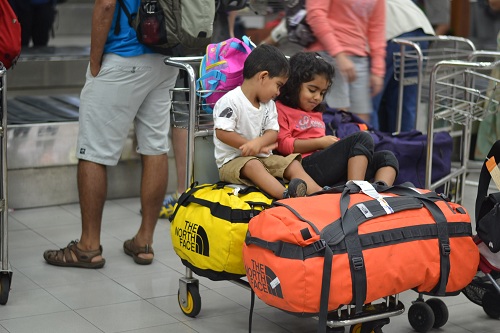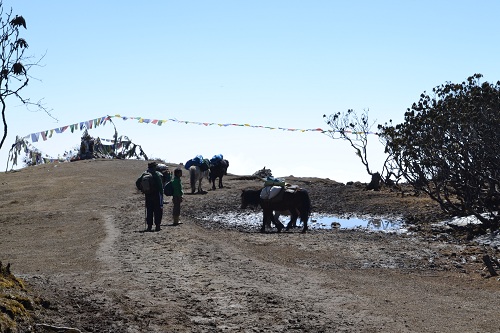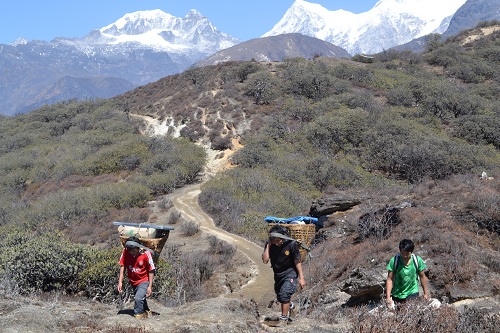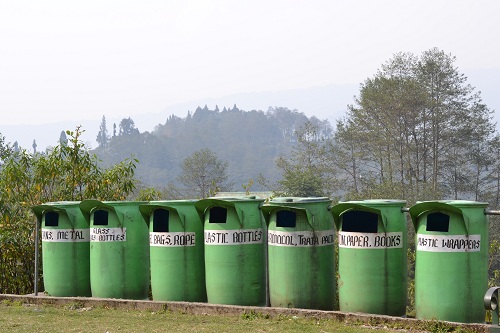When people now ask us where we are from we usually reply that we are nomads. Here is a typical scene of our family, with our bags packed and ready to find a new temporary home.

Nomads are technically “a member of a group of people who have no fixed home and move according to the seasons from place to place in search of food, water, and grazing land.” How many if us really have a fixed home, or a single place where we find all our basic necessities? I’d say that we are all nomadic to some extent. We often work and live in separate places, spend parts of our days in a gym, jump from one restaurant to the next for dinner, maybe even couch surf on occasion. Even if you’re a homebody, chances are you’ve moved several times in your life. When it comes down to it, we all have elements of nomadic life.
While we have been nomadic for the past five months, we took our nomadic lives to the extreme during our five day trek in Sikkim. Our only option to reach Dzongri from Yuksom was by foot through the uninhabited Kanchenjunga National Park. The Sikkim government prohibits solo trekkers and requires them to be accompanied by guides and porters (not that we would have actually tried to do the trek on our own anyway). To support our nomadic lives in Sikkim, it took a guide, a cook with two helpers/porters, a horseman, and five horses. That entire entourage was just for Sandeep and me. Like extreme nomads, our group spent each night in a new place, found new water sources wherever we were, and managed on the food we carried. Our animals did plenty of grazing.

The horseman made sure the five horses stayed together as they hauled our tent, the kitchen tent (which also doubled as a tent for our five companions), a bathroom tent (as in a tent that surrounds a hole in the ground), our bags, sleeping bags and mats, and the horse food. Sikkim has two types of pack animals, horses and dzos, which are a cross between a cow and a yak. Dzos are easier to breed and purchase, but horses are preferred as they are less prone to wandering and don’t come with the dangerous horns.
Our cook and the two helpers took everything needed for five days of pretty amazing meals. This included a gas tank, a variety of pots and pans, a table and chairs (unnecessary but definitely a bonus after a day of trekking), and the food itself. They churned out meals that included gluten free pizza and steamy soups, all from a single kerosene stove and a couple of pots..

At first Sandeep and I couldn’t understand why we needed an entourage of five people and five pack animals. However, we realized that we used everything that we had taken up the mountains at some point during our trek. We carried all our waste back to dispose of responsibly upon our return to Yuksom.

Traditional nomads travelled in groups and were always accompanied by animals. Our Sikkim trek brought us as close as we’ve ever been to real nomadic existance.
